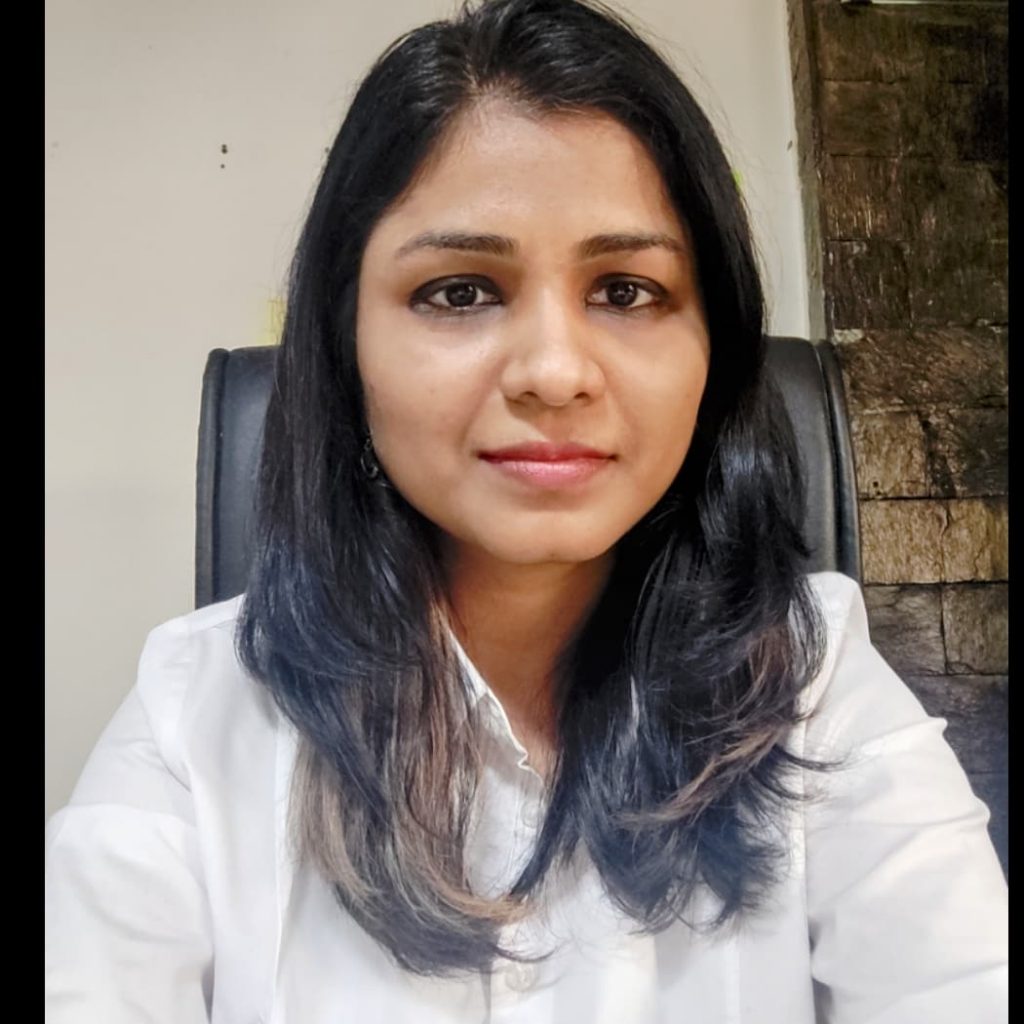This interview has been published by Namrata Singh and The SuperLawyer Team

Can you share your diverse and enriching journey from IIT Kharagpur to founding Umbrella Legal. What inspired you to transition from a technical background to a career in law and entrepreneurship?
Thank you Superlawyer Team for this opportunity and I feel very lucky to be approached and interviewed for the second time in my legal career. To begin with, I am a first-generation lawyer who, in my third year of engineering, made the decision to shift gears. Throughout 4 years of engineering college, I participated in various extracurricular and events, which gradually led me to realize my passion and aptitude for law. During the final year of my engineering studies, subjects such as introduction to patents and technology transfer solidified my resolve to pursue law after engineering, with the aim of integrating knowledge from both fields to tackle complex issues. So, at the end of 4 years of engineering college, I opted for a three-year law program specialized for individuals with a technical background at RGSOIPL, IIT Kharagpur, instead of pursuing MTech or joining a corporate job. I had wonderful cohorts and friends at law school, who added to the need to challenge myself for learning and gaining experience.
Following campus recruitment at IIT Kharagpur, I joined Hero MotoCorp’s R&D setup as part of their IP cell, gaining valuable experience in handling patent-related matters. After a tenure of 2.5 years at Hero, I transitioned to TCS as an IP analyst, where I delved into core IP issues and gained extensive exposure to domestic and international IP laws, particularly in the software domain. While recognized as a valuable asset at TCS, I felt the urge to broaden my legal expertise, leading me to join Bajaj Electricals as Manager-Legal and IP. In this role, I provided comprehensive legal support across various departments, refining my leadership skills and navigating complex legal challenges across multiple business verticals over a span of 2.5 years. Subsequently, I moved to ATC Tires Private Limited, further expanding my legal exposure and expertise in handling legal and compliance matters.
The transition from an in-house counsel role to an entrepreneurial position is not abrupt but rather rooted in a steadfast aspiration that began during law school to establish my own firm. Through exposure and accumulated experience in the legal field, I eventually reached the point where I felt confident enough to leave my corporate position and embark on this entrepreneurial journey.
Starting Umbrella Legal must have been an exciting yet daunting venture. What were some of the initial challenges you faced, and how did you overcome them to establish a successful legal practice?
I think the decision to leave my position as Senior Manager-Legal in 2022 to start my own firm has been the biggest challenge. The magnitude of this challenge becomes evident when starting without an existing client base, despite a decade of experience. Over time, I learned to cultivate relationships and instil trust with clients gradually. My background as an in-house counsel proved invaluable in comprehending the intricacies of transactions from both business and legal perspectives, affording me a distinct advantage in handling certain complex matters.
Your involvement with teaching and providing legal exposure to students at NMIMS Mumbai and IIM Bodhgaya is commendable. What drives you to impart knowledge and mentorship, and how do you believe it contributes to the legal profession?
My father, a teacher himself, instilled in me the value of imparting knowledge and contributing to the community. I have a fondness for teaching, and whenever the opportunity arises, I am committed to delivering my best as a faculty member. As a legal professional, I actively engage in continuous learning, staying updated on emerging trends in law, and giving back to the legal community through knowledge sharing, mentorship programs, and academic collaborations.
I had the pleasure of teaching two modules of the executive law program at IIM Bodhgaya, where participants engaged in discussions on legal interpretation, case studies, and shared their experiences in addressing similar issues within their organizations. Teaching law, to me, is about more than just imparting knowledge; it’s also an opportunity to learn from diverse perspectives and experiences.
As someone deeply involved in the startup ecosystem, what do you believe are the key legal challenges that startups often overlook, and how can they proactively address them to ensure long-term success?
The legal challenges start from selection of entities to incorporate to finally implementing practices to mitigate legal risks. I remember having this discussion with a client wherein they were ready to deploy all measures to ensure that accounts become up and running from day 1 but when it was time for legal compliances, the reply was “is it absolutely necessary” and what would be the penalty, if not complied.
Certain startups fail to recognize the significance of completing legal paperwork, safeguarding intellectual property, establishing legal frameworks, and formalizing co-founder agreements and equity distribution plans. The initial action to tackle these matters involves engaging an attorney for in-depth discussions concerning your needs, financial constraints, and deadlines. Establishing a structured timeline ensures that all necessary steps are taken in a timely manner.
Becoming a registered patent agent is a significant achievement. Could you share with us your experience preparing for and passing the Indian Patent Agent Examination?
In 2013, while serving as Deputy Manager at Hero MotoCorp, I successfully passed the patent agent examination. In my role, I was tasked with various responsibilities such as conducting patent searches, drafting, filing, and providing related advisory services. Given the frequent engagement with patent-related matters, I found myself referring to the relevant laws and regulations multiple times a day, inadvertently preparing me for the examination. Moreover, drafting patent specifications as part of my duties involved comprehending the inventions conceived by inventors, further enhancing my preparation for the examination.
Your involvement in advising on software patents and navigating the complexities of international patent filings is impressive. What unique considerations or challenges arise when dealing with software-related inventions in the context of patents, and how do you address them?
My exposure to software patents and challenges around them began with my engagement with TCS, Mumbai. I joined TCS in January 2015 and just a few months before, the Alice vs. The CLS case was decided in the US Supreme Court and every software company was concerned with the verdict. In that case, it was held that patent claims granted for computer-implemented electronic escrow services were directed to abstract ideas and not patentable subject matter. This case had a profound impact on the way of examination of software patents and laid out two step analysis. India patent office on the other hand was busy drafting CRI guidelines for examination of computer related inventions but there were a lot of comments and recommendations given by industry players upon release of those guidelines due to clarity and interpretation issues. One of the biggest challenges after the Alice case was to overcome the 101 rejections in the US with limited support available from pre-Alice patent specification.
You’ve mentioned handling complex transactions during your tenure with some of India’s biggest companies. Can you share some strategies or approaches you utilized when faced with particularly challenging cases, such as those involving intricate IP issues or high-stakes legal matters?
Navigating transactions entangled in numerous legal complexities demands meticulous strategic planning, clear communication with the business team, and scrupulous attention to detail when reviewing documents and disclosures. In the initial stages, it’s crucial to engage in thorough discussions with relevant teams, delving into the nature, rationale, and expected outcomes, while also conveying expectations and providing regular updates.
At the outset of such intricate transactions, establishing a risk matrix is imperative, allowing for the identification of potential risks and the implementation of mitigation measures to secure a favourable outcome. Complex transactions often involve unanticipated challenges and it becomes important to strategize and work to ensure that you do not deviate significantly while revisiting and adjusting the transaction structure.
Your journey from a deputy manager at Hero MotoCorp to founding Umbrella Legal is quite inspiring. What lessons or experiences from your early career do you carry with you today, and how have they influenced your professional growth?
Thank you for your kind words. I appreciate your kind sentiments. Transitioning from my role as deputy manager at Hero MotoCorp to establishing my own firm has been a journey rich in valuable lessons and experiences, supported by the guidance of family, friends, and mentors at various stages of my career. One paramount lesson I’ve embraced and applied is that there are no shortcuts to professional advancement, and there’s no justification for compromising on the highest standards of professionalism and quality.
Balancing a career as a legal entrepreneur and being a strategic legal advisor requires excellent time management skills. What are some strategies or habits that you’ve found effective in maintaining this balance and staying productive?
In today’s fast-paced professional landscape, many individuals encounter the dual challenges of time management and maintaining a healthy work-life balance. Within the legal profession, given the demanding nature of the work and long hours, it becomes essential to implement strategies for effective time management. One particularly beneficial approach is establishing clear priorities and developing the skill of delegation.
In the past, I struggled with setting boundaries regarding personal time, often allowing work-related matters to encroach upon my personal life. However, I gradually altered these habits. Now, I prioritize carving out dedicated time for my personal life to prevent burnout and ensure rejuvenation. This shift has been instrumental in enhancing my overall well-being and productivity.
Get in touch with Kalpana Garg–
























